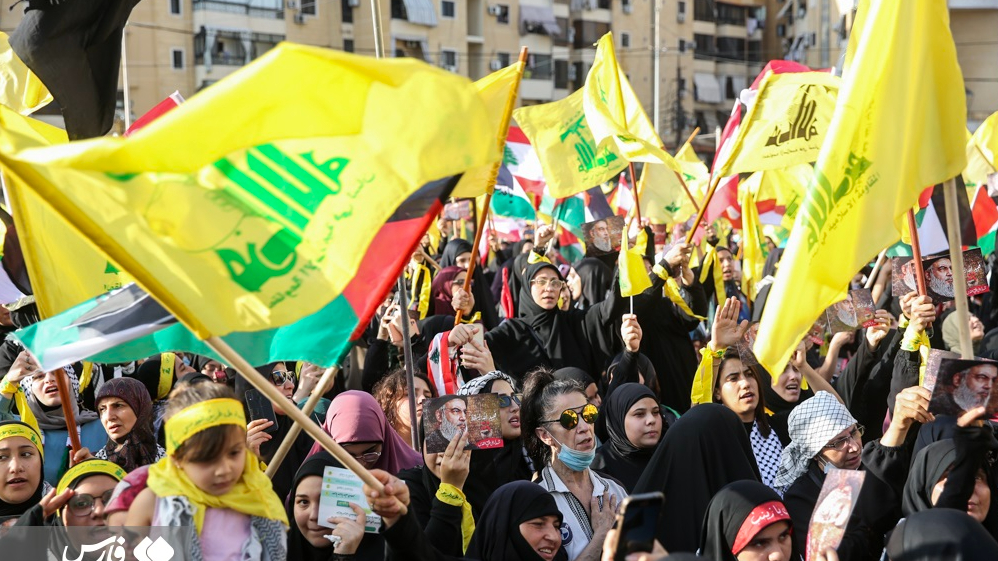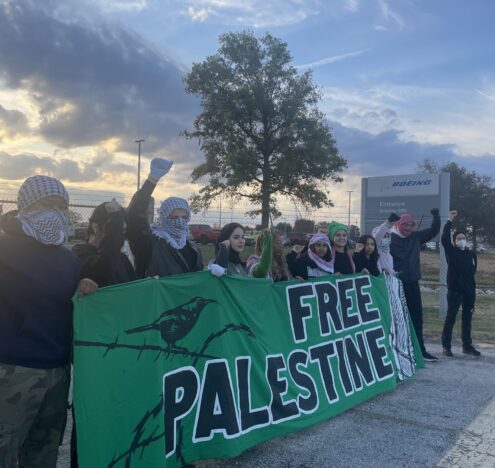Mohammed Ali Nasser Farran, a 35-year-old physics teacher at the Hassan Kamal al-Sabah High School in his hometown of Nabatieh, was on his way to proctor a test on the morning of May 23 when, suddenly, a missile fired from an Israeli drone struck Farran’s car, killing him instantly.
Hezbollah, a powerful Iran-backed political party and militant group in Lebanon, later claimed Farran as one of their own with a Hezbollah source saying that he was a member of the party’s tabbiya, a village defense force.
However, Farran was not the only casualty in the strike. The blast shattered the glass of a van, lightly injuring three schoolchildren en route to their studies.
The children were only the latest injuries in the near-daily fighting between Hezbollah and Israel that began on Oct. 8, the day after Hamas’s deadly attack on Israel, which has left 415 people dead in Lebanon and 23 dead in Israel.
In Lebanon, the fighting has displaced 90,000 people from their homes along the border, forced to seek shelter in cities further north like Tyre and Nabatieh in the hopes of finding some semblance of safety.
Throughout the fighting, Israel has continued to pound south Lebanon with bombs and artillery, many of which its main benefactor, the United States, provided.
“Vital Role”
However, US President Joe Biden’s administration recently halted the transfer of more than 3,000 bombs that weigh between 500 and 2,000 pounds to Israel over the latter’s offensive in Rafah, the Gazan city that hugs the Egyptian border. Although an announcement of $1 billion in military aid followed the decision, it has called into question whether the US would support a wider Israeli military campaign in Lebanon against Hezbollah — a foe many consider more dangerous and more formidable than Hamas in Gaza.
“Without US backing, it would be very difficult for Israel to wage a successful war against Hezbollah in Lebanon,” Imad Salamey, an associate professor of political science and international affairs at the Lebanese American University, told Inkstick.
“US support, particularly political backing, is crucial for Israel to achieve success in such a conflict,” Salamey added. “The strategic and logistical support provided by the US plays a vital role in ensuring Israel’s military effectiveness and international legitimacy.”
Essential Ally
There is little evidence that either Hezbollah or Israel are looking to turn the current bout of fighting into a full-scale war.
Even as Hezbollah and Israeli officials say that they are prepared for war, both have said that they are either not looking to expand the conflict or that they would prefer a diplomatic solution. In 2006, Hezbollah and Israel fought a deadly 34-day war
That, though, has not stopped both sides from launching a seemingly endless stream of rockets and artillery at one another.
Without US backing, it would be very difficult for Israel to wage a successful war against Hezbollah in Lebanon.
– Imad Salamey
For Israel, this is possible due to the ongoing military support from the US which has provided billions of dollars worth of munitions to its key ally in the region.
“It’s important to understand that the US’s approach to military assistance is nuanced and considers both strategic interests and ethical concerns,” Salamey explained. “While there might be discussions and debates within the US administration about specific types of military equipment, the overall commitment to Israel’s security remains steadfast.”
However, Salamey argued that while the US support for Israel remains steadfast, it is not unconditional as when arms are sent to Israel, it is under the impression that it will be used in “measured responses to minimize harm to civilians and comply with international humanitarian laws.”
As the war in Gaza continues, cracks have started to show in the US’s willingness to blindly send weapons to Israel. In early May, the Biden administration announced that it was withholding the transfer of 2,000 and 500-pound bombs since they have been one of the biggest culprits in causing the massive civilian death toll and devastation to the Palestinian enclave.
“Destroying Entire Towns”
According to Mohanad Hage Ali, the deputy director of research at the Carnegie Middle East Center, the US withholding these bombs is something that could have a significant effect on any Israeli ambitions in Lebanon.
“In previous conflicts, Israel has used disproportionate force, destroying entire towns and villages, a great part of Beirut’s southern suburbs to inflict collective punishment on the larger population, as a means of deterrence against attacks from Lebanon. This came to be known as the Dahiya Doctrine, and it required the munition of larger US-made bombs,” Hage Ali said.
This impact would not be felt immediately, according to Josh Paul, a former director at the State Department who helped oversee US arms transfers and a current non-fellow resident at Democracy for the Arab World Now (DAWN). Paul said that Israel has a special reserve of munitions for a potential future war with Hezbollah.
“The Biden Administration’s steady flow of arms to Israel in the past seven months has essentially enabled it to operate the way it has been operating in Gaza without having to significantly dip into that reserve stockpile,” Paul explained. “In terms of any potential significant conflict between Israel and Hezbollah, Israel’s stockpiles are essentially unchanged from where they were before the conflict.”
Should the US cut off certain munitions, though, it could force Israel to dip into this reserve, making any military campaign much more challenging.
“Complex Considerations”
According to Paul, there are three methods of arms transfers.
The first includes major transfers that require congressional approval and are delivered over an extended period of time. This is the category where the bombs that the administration withheld fall into.
The second is the munitions that are below the congressional notification threshold — $14 million for significant military equipment or a $50 million total case value — and can receive State Department approval within 48 hours. The US sends these almost immediately.
Lastly, there is the War Reserve Stock for Allies (WRSA) where Israel can dip into the US military’s weapons stockpile in Israel with the approval of the Secretary of Defense. According to Paul, Defense Secretary Lloyd Austin has continued to give his approval.
As the US demonstrated when it withheld bombs earlier this month, Washington could stop all of this at any time. Such a move would have a drastic impact on Israel’s ability to wage a war in Lebanon.
According to Hage Ali, in the event that a full-scale war broke out with Hezbollah, whether or not Israel would have US backing largely depends on who starts the war.
“If Lebanon was more on the receiving end and Hezbollah showed willingness to end the conflict, I don’t see how the US could be forced to send more munitions,” he explained. “But still, Biden can change his mind for whatever reason or pressure. He has already surprised many with his consistent support for Israel.”
Conflicting Opinions
However, Paul believes that it would not necessarily matter who started the conflict as a high Israeli death toll would spur US support for Israel once again and “the Biden administration will feel free to say that it, again, gives ironclad support for Israel.”
In the US government, there are mixed opinions over whether the US should back Israel in a war against Hezbollah, in part because of how much larger that war would be.
“Some believe that the timing is ripe to undermine Hezbollah’s capabilities, which could shift attention away from Gaza and reduce international condemnation,” Salamey stated.
“However, others are concerned that widening the conflict could escalate events beyond control, posing significant risks for both Israel and the US. These contrasting perspectives reflect the complex considerations involved in US foreign policy decisions regarding Iran and its role in the region.”




















